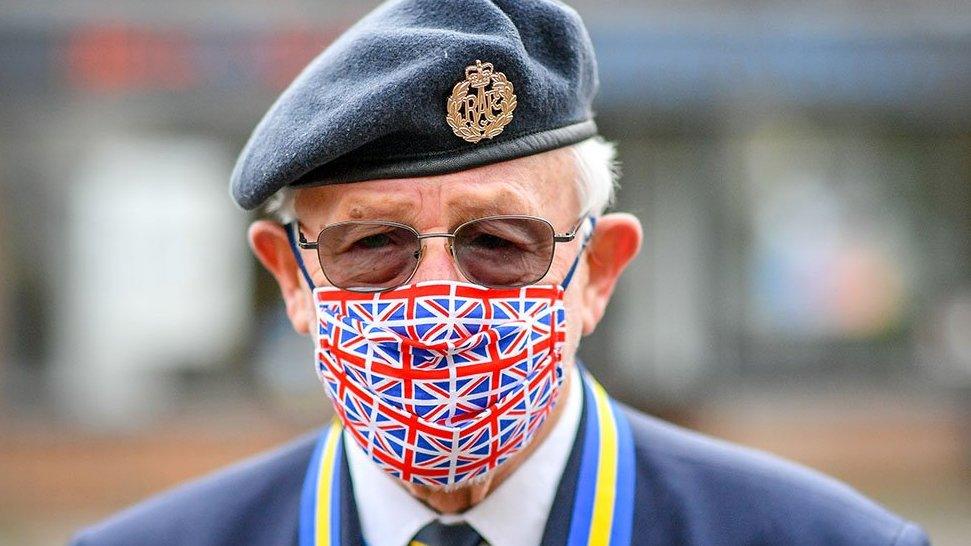Armistice Day: Centenary of Unknown Warrior burial marked
- Published
Prince Charles and the Duchess of Cornwall have joined figures from government and the armed forces for an Armistice Day service, as the UK fell silent to remember the war dead.
A special service was held at Westminster Abbey to mark the centenary of the burial of the Unknown Warrior.
The congregation - and millions around the UK - commemorated those who died with a two-minute silence at 11:00 GMT.
Armistice Day marks the day World War One ended in 1918.
The grave of the Unknown Warrior represents those who died in the war and whose place of death is not known or whose remains are unidentified.
The scaled-back Westminster Abbey service, led by the Dean of Westminster, Dr David Hoyle, was attended by the prime minister, Labour leader Sir Keir Starmer, Defence Secretary Ben Wallace and Metropolitan Police Commissioner Cressida Dick.
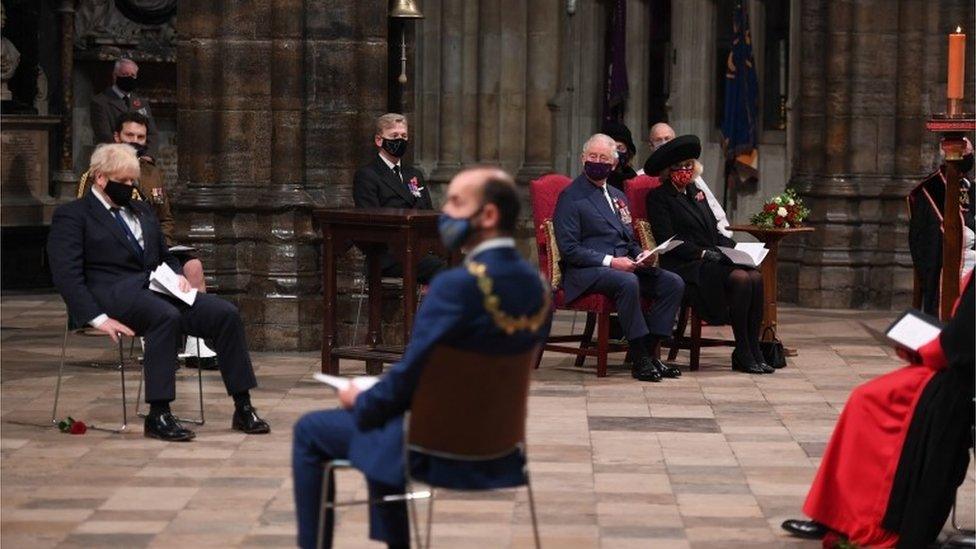
Boris Johnson was seated apart from the royal couple to follow social distancing rules
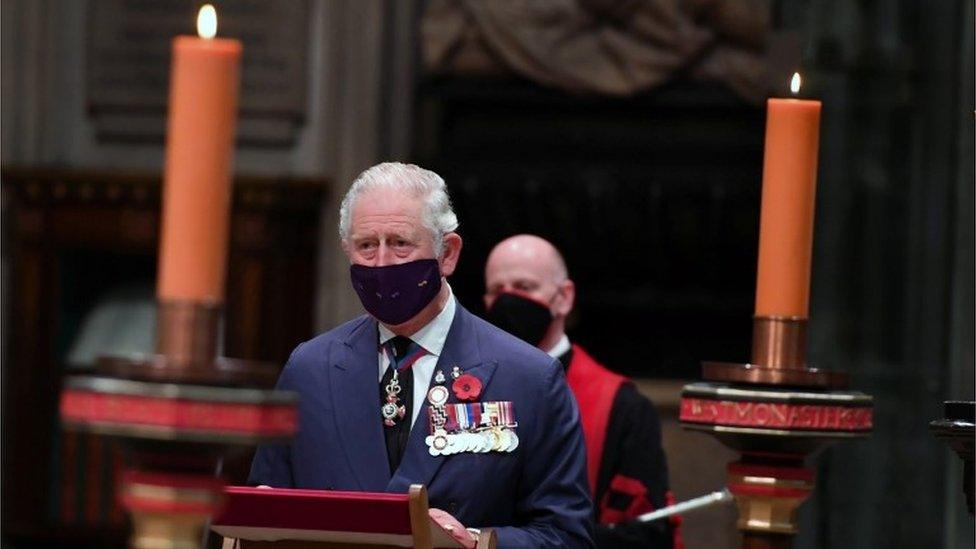
Prince Charles wore a face mask throughout the service
It included an address from the Archbishop of Canterbury, Justin Welby, who paid tribute to the many millions who had died "unnamed and unclaimed, except by God".
He went on to refer to the thousands, even millions, who were making sacrifices today, whose names may never be known.
"They may be anonymous but their actions are glorious," he told the congregation, all seated two metres apart.
Poet Laureate Simon Armitage read his poem The Bed about a fallen soldier transported from being "broken and sleeping rough in a dirt grave" to being buried "among drowsing poets and dozing saints" in Westminster Abbey.
Afterwards, former Catatonia singer now BBC radio presenter, Cerys Matthews, read the words of a World War One widow convinced the Unknown Warrior was her own husband.
Ruby Turner, accompanied by Jools Holland, sang the hymn Abide with Me, which was sung at the burial 100 years ago.
Commemorations have also been held at the Edinburgh Gardens Of Remembrance, Cardiff National War Memorial, Belfast City Hall and National Arboretum in Staffordshire.
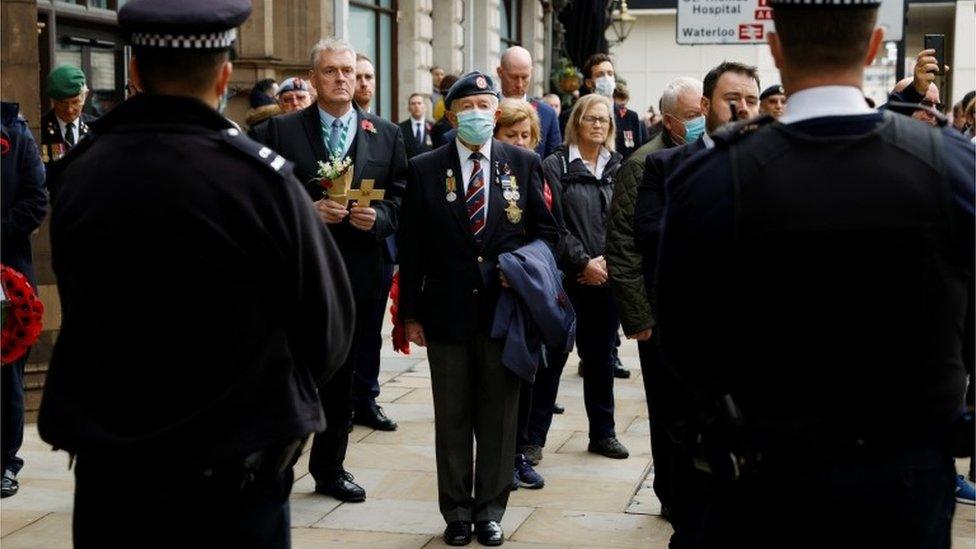
The public and veterans observed the two-minute silence away from the Cenotaph
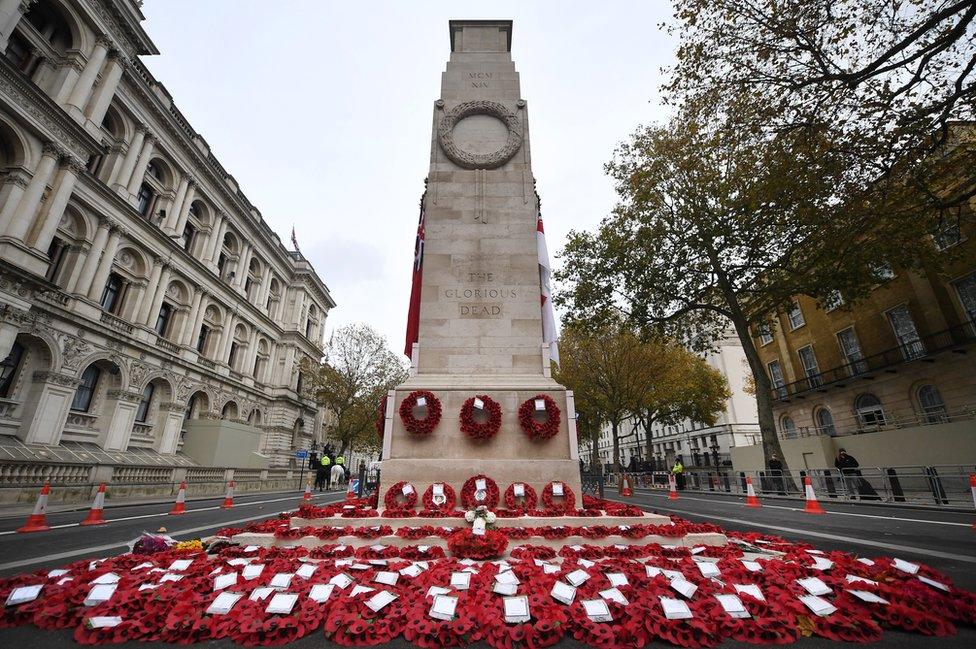
Police removed a climate change banner from the Cenotaph
Before the scheduled events, an Extinction Rebellion activist staged a protest at the Cenotaph in central London.
Private Donald Bell, who served four tours in Northern Ireland, placed a banner in front of the war memorial that read 'Honour Their Sacrifice, Climate Change Means War'.
He also laid a wreath of poppies with the slogan 'Act Now' at the site, saying "unchecked climate change means a return to a world at war". Both the banner and the wreath were later taken down by police.
Boris Johnson's spokesman said their removal was "an operational matter" for officers and condemned the protest as "profoundly disrespectful".
'Sacrifice and bravery'
Ahead of the commemorations, the Duchess of Cambridge spoke to military families who have lost loved ones, telling them they should be "proud" of their achievements and "the sacrifice and the bravery that they've shown".
The duchess marked Remembrance week by speaking via video call on Monday to three women about how they had been supported by the Royal British Legion.
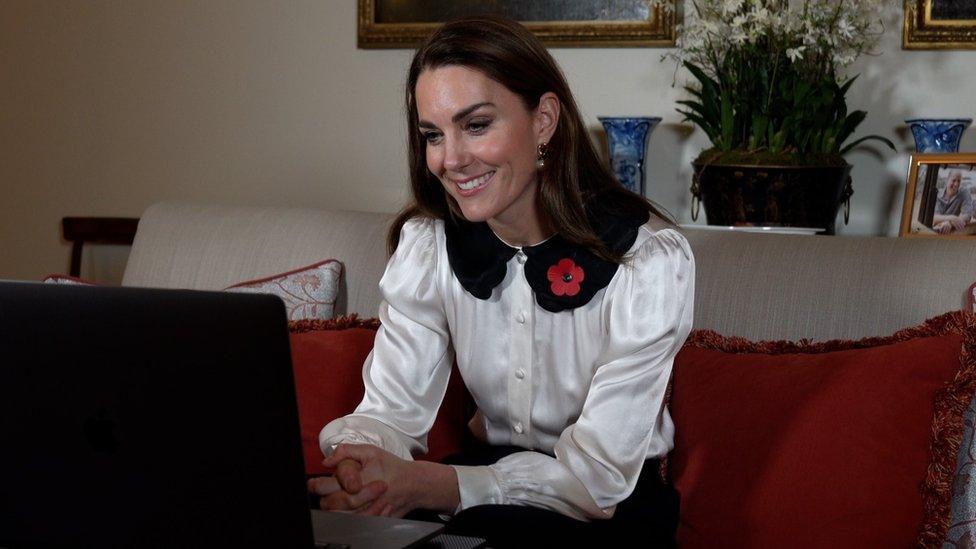
The Duchess of Cambridge spoke to three women who mourned the loss of partners or close family
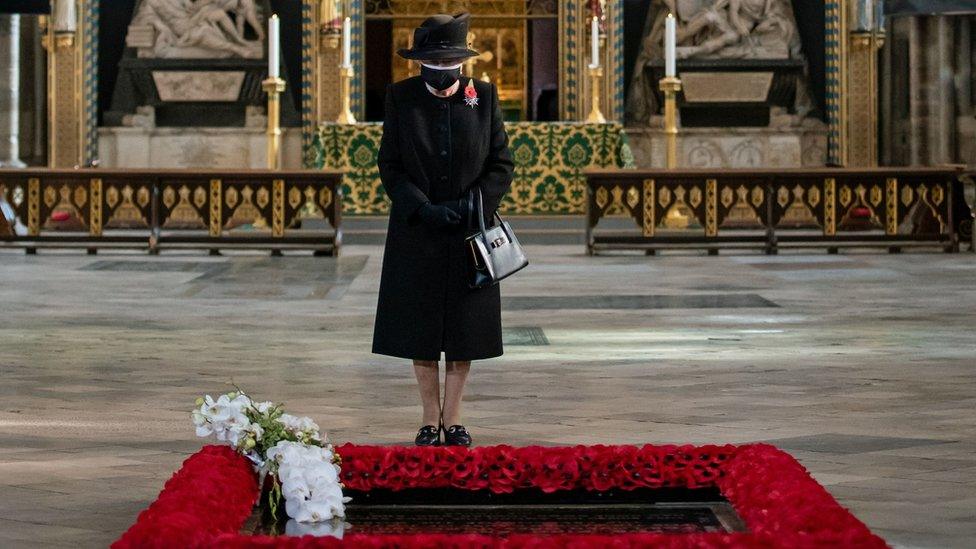
The Queen visited the Unknown Warrior's grave last week
It comes after the Queen led the nation in marking Remembrance Sunday at a scaled-back service at the Cenotaph in London's Whitehall.
Social distancing measures were in place and the service was closed to the public for the first time.
Days before, the Queen was seen wearing a face mask in public for the first time when she made a private pilgrimage to the grave of the Unknown Warrior.
The concept of the grave of the Unknown Warrior was inspired by Rev David Railton, who had served as a chaplain on the Western Front during World War One.
After the conflict he wrote to the then-Dean of Westminster, Herbert Ryle, about his proposal which was later supported by King George V and Prime Minister David Lloyd George.
The body was chosen from four unknown British servicemen - exhumed from four battle areas - by Brig Gen Louis Wyatt, commander of British forces in France and Flanders, and transported back to Britain.
On 11 November 1920, the coffin was draped with a union jack and taken on a gun carriage to the Cenotaph, where the Queen's grandfather George V placed a wreath upon it.
The King - and nearly 1,000 widows and mothers of men killed in World War One - were present as the warrior was buried at the Abbey. A handful of earth from France was then dropped by the king onto his coffin during the service.
- Published8 November 2020
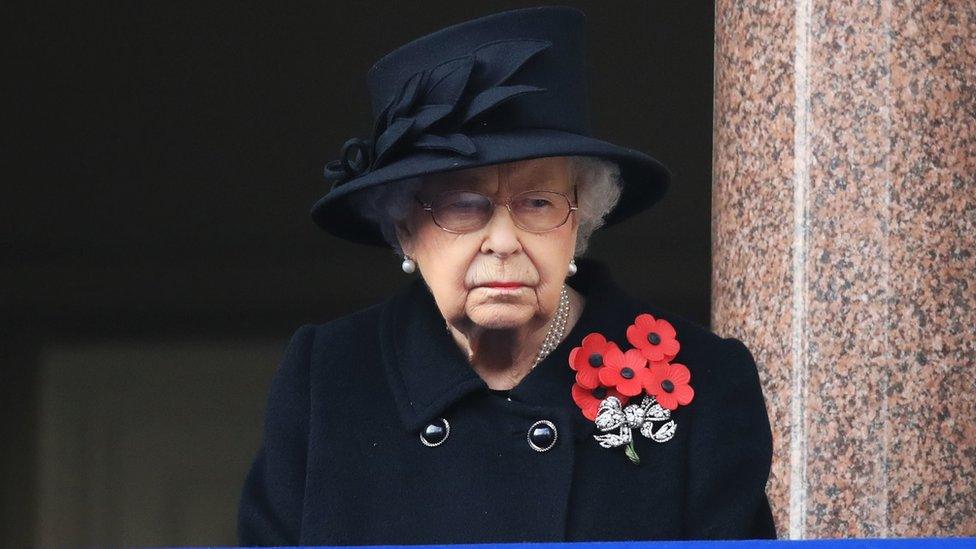
- Published7 November 2020

- Published11 November 2020
